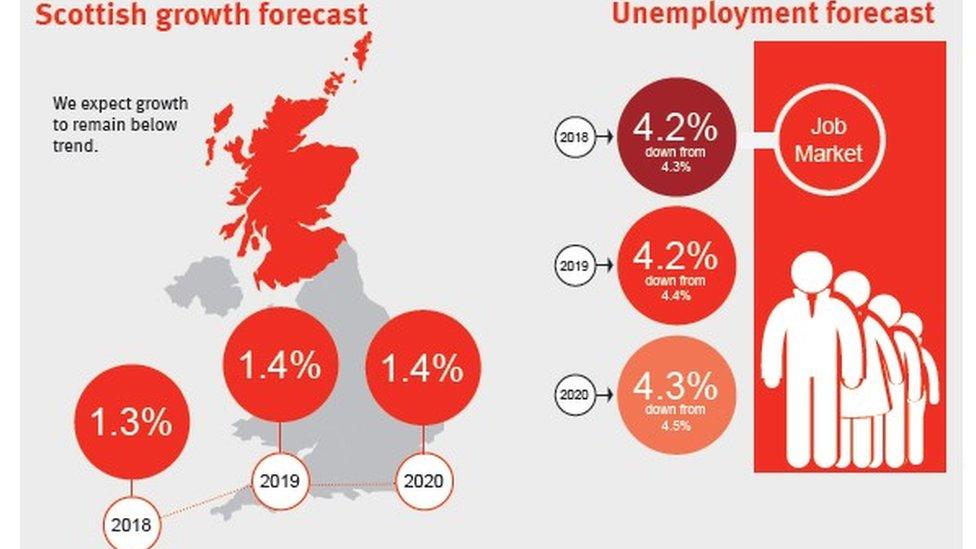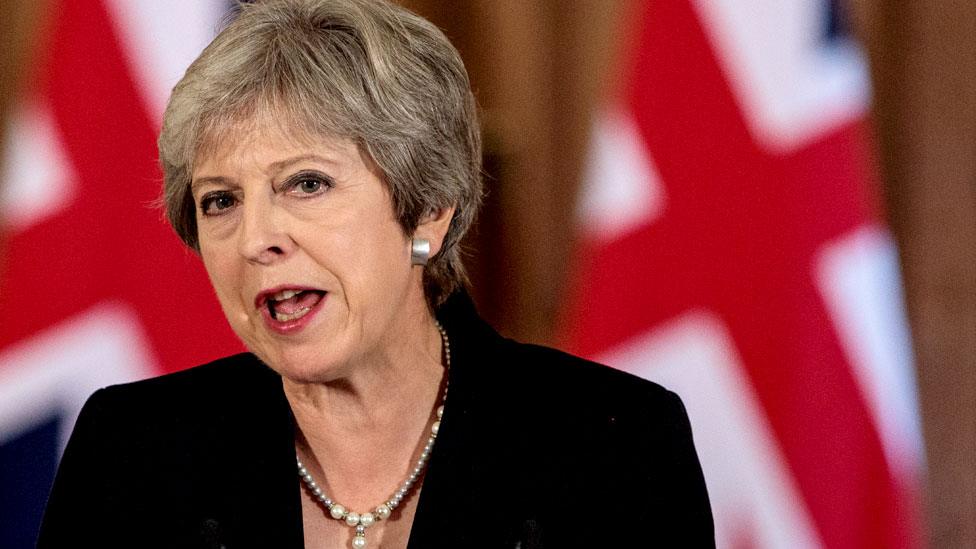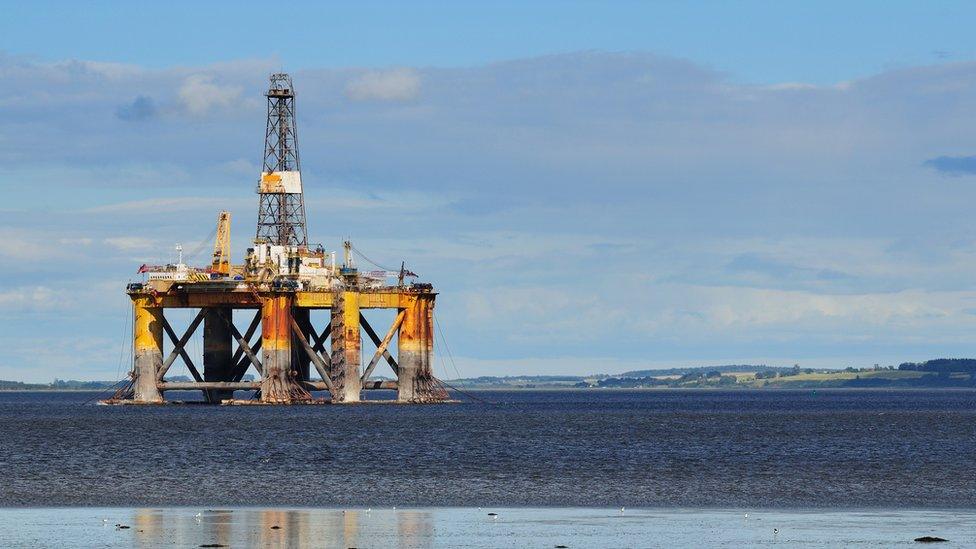Smooth Brexit transition 'vital for Scots economy'
- Published
- comments

Securing a smooth Brexit transition is "vital" to protect Scotland's economy - even if that means extending the timeframe for talks on leaving the EU, according to a leading think tank.
The Fraser of Allander Institute said extending the Article 50 negotiation period "could be essential to protect jobs and livelihoods".
It warned a hard Brexit would act as a drag on Scotland's economic potential.
But it added that the risk of a no-deal Brexit was of most concern.
Prime Minister Theresa May triggered Article 50 last year, committing the UK to leaving the EU in March 2019.
She warned on Friday that the Brexit negotiations were at an impasse and there would be no progress until the EU treated her proposals seriously.
In its latest commentary, the economic forecaster said recent data had confirmed "a welcome pick-up in activity" in the Scottish economy, with Scottish GDP outpacing the UK for two quarters in a row this year.
It now predicts that Scotland's GDP will expand by 1.3% this year and 1.4% in 2019 and 2020, with growth remaining below trend as a result of ongoing structural challenges, such as weak productivity growth.

The institute forecasts growth over the next three years
Fraser of Allander Institute director Prof Graeme Roy said: "Whether you agree or disagree with the decision to leave the EU - and irrespective of the nature of the final settlement - it is essential that we have an orderly transition.
"To enable firms to prepare and develop contingency plans it is vital that a deal is reached. Should this require more time to negotiate a workable solution then so be it.
"Extending the Article 50 negotiation period - but maintaining the same transition timescale to 2020 - may be unpalatable for some but could be essential to protect jobs and livelihoods."
'Greatest risk'
Prof Roy added: "As we outlined in June, assuming that a broad agreement on Brexit can be struck, we are cautiously optimistic about prospects for this year and next.
"However, the greatest risk to this assessment is the possibility of a no-deal outcome to the Brexit negotiations.
"Our latest work shows that most businesses in Scotland are unprepared for Brexit, with the lack of certainty over any final deal being a key stumbling block.
"As the chancellor, governor of the Bank of England and head of the IMF have all warned, leaving the EU in March next year with no agreement in place has the potential to cause serious disruption to the UK and Scottish economies."
'Best option'
Reacting to the report, Scottish Constitutional Relations Secretary Michael Russell said: "The Scottish government has consistently argued that the best option for Scotland is to stay in the EU or, failing that, to stay in the European single market or customs union, which is around eight times bigger than the UK market alone.
"But we should not be faced with a choice between no-deal and a 'blind Brexit', with no significant detail on future trade relationships.
"That means - as the first minister has called for - that an extension to the Article 50 period must be on the table, and we welcome the Fraser of Allander Institute support for that position."
A UK government spokesman said: "Our White Paper outlined our vision for a principle and pragmatic plan which will ensure that all of the UK, including Scotland, is well placed to capitalise on the opportunities of Brexit.
"We firmly believe it is in the interests of both the EU and the UK to strike a mutually beneficial deal.
"That remains the goal on both sides and we are confident that this will be achieved."
- Published21 September 2018

- Published21 September 2018

- Published20 June 2018

- Published29 June 2017
